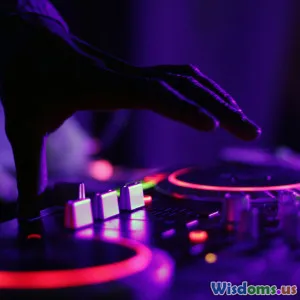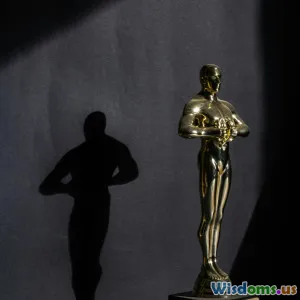
Can Music Alone Save a Mediocre Film Experience
8 min read Exploring whether music alone can elevate a mediocre film into a memorable cinematic experience. (0 Reviews)
Can Music Alone Save a Mediocre Film Experience?
Introduction
Picture this: you're watching a film that struggles with pacing, weak plotting, or uninspired acting. Yet, despite these shortcomings, you find yourself emotionally moved or hooked, largely because of its musical score. This begs an enticing question—can music alone rescue a mediocre film experience?
While a film is a composite art form, involving visuals, narrative, and performance, music holds a unique power to influence audience perception, evoke emotions, and at times, surprisingly steer viewers’ reactions toward a more favorable reception. In this article, we'll explore the intricate relationship between film music and audience experience, dissect examples where music redeemed films, and assess whether a great score can compensate for weaker elements.
Anatomy of a Film Experience: Why Music Matters
Before evaluating music’s salvaging power, it’s important to understand its role within the cinematic ecosystem.
Music as Narrative Enhancer
Music is not simply background filler; it acts as an emotional guide, underscoring tension, highlighting character psychology, or even foreshadowing events.
For example, Bernard Herrmann’s score for "Psycho" (1960) uses piercing, repetitive strings to amplify terror—helping build suspense that visual cues alone might not. Such music engages viewers at a primal level, intensifying their experience.
Music Creating Identity
Iconic soundtracks establish memorable audio branding. Think John Williams’ themes for "Star Wars" or "Indiana Jones"—they evoke the spirit and tone profoundly, becoming inseparable from the film’s identity.
This emotional imprint can influence audience rating and fan loyalty regardless of narrative flaws.
Emotional Masking: Music’s Double-Edged Sword
Music can veil or soften apparent film weaknesses by manipulating mood. The phenomenon known as "emotional masking" allows audiences to overlook plot holes or uneven performances when a well-crafted score envelops a scene emotionally.
Case Studies: Music Saving the Day
1. "Drive" (2011) — A Minimalist Score With Maximum Impact
Despite its avant-garde style and sometimes divisive pacing, "Drive" by Nicolas Winding Refn became a cult sensation through its hypnotic synth-based soundtrack by Cliff Martinez.
The atmospheric music kept audiences immersed, evoking a mood heavier than dialogue or story might have achieved alone. Martinez’s soundscape essentially enhanced the film’s noir vibe, converting a semi-slow-burning crime drama into a stylistic cultural touchstone.
2. "Tron: Legacy" (2010) — Elevating a Sci-Fi Sequel
While the sequel to "Tron" faced criticism for certain storytelling clichés and character development issues, Daft Punk’s electronic soundtrack received universal praise.
Their pulsating, futuristic score provided a crucial layer of excitement and mood-setting, energizing the visual spectacle despite narrative shortcomings. Many viewers cite the soundtrack as a significant reason why the movie remains a beloved piece in sci-fi lingerings.
3. "Suicide Squad" (2016) — Can Popular Music Fix Chaos?
"Suicide Squad" showcased a dynamic popular music soundtrack that temporarily lifted audience morale. Featuring contemporary hits by artists like Twenty One Pilots and Imagine Dragons, the tunes contributed bursts of energy and a rebellious tone matching the film’s antihero theme.
However, despite commercial success of the soundtrack, overall reception highlighted that music alone couldn’t fully patch story inconsistencies or character issues — pointing to music as an enhancer but not a complete remedy.
Expert Insights and Data
Film composers and critics offer fascinating perspectives about music’s power:
-
Hans Zimmer, notable composer for films like "Inception" and "Gladiator," emphasizes: "Music speaks where words fail. It fills the invisible autobiography of the characters and narrative."
-
A 2019 study by the University of California found that scenes accompanied by compelling scores significantly raised viewers’ emotional engagement and memory retention, even when the visuals were average.
-
Yet, renowned critic Roger Ebert highlighted that music can mask flaws but "cannot create a story where none exists. It amplifies but cannot fabricate emotions tied to genuine cinematic content."
Limits of Music: What It Can’t Do
Storytelling Requires More Than Atmosphere
A compelling plot with narrative coherence forms a film’s backbone. Music supports but cannot replace the storytelling essentials of characterization and plot development.
Acting and Performance
Subpar acting cannot be fixed solely by music. Although music influences feelings, if performances feel unconvincing, disbelief suspension fails.
Audience Skepticism
Modern viewers are media savvy, capable of dissecting and detecting when music is used to disguise film deficits. If overdone, the effect may feel manipulative, reducing overall appreciation.
How to Strategically Use Music to Enhance Mediocre Films
Emphasize Mood and Atmosphere
In genres like horror or noir, suspenseful or haunting scores build indispensable tension, compensating for a pared-down storyline.
Promote Emotional Connectivity
Themes associated with characters or motifs help deepen audience connection when storytelling otherwise falters.
Integration with Visuals
Soundtracking should complement cinematography and editing rhythm. For instance, synchronized musical cues paired with editing peaks accentuate viewer immersion.
Collaborate Closely with Directors
Early collaboration between composers and directors encourages music tailored to contextual needs rather than generic fill.
Conclusion
Can music alone save a mediocre film experience? The answer is nuanced. Music wields extraordinary power to evoke emotion, amplify mood, and at times rescue dull or flawed cinematic elements. Scores can elevate pacing, enhance characters, and build iconic identities, transforming audience perceptions in unexpected ways.
However, music works best in concert with other film components; it is a potent enhancer, not an infallible fix. Films like "Drive" or "Tron: Legacy" serve as shining examples where music lifted narratives, yet even they rely on at least basic storytelling competency.
For creators, strategic and thoughtful musical integration is critical — the right soundtrack may be the difference between a forgotten flick and a cult classic. For viewers, appreciating film music offers a richer, more immersive experience, revealing how deeply intertwined sound and image truly are.
In conclusion, music alone rarely saves a film, but it undoubtedly possesses the power to transform and redeem, enriching even the most mediocre cinematic journeys.
Explore more on film scoring to appreciate the unseen force shaping your movie experiences!
Rate the Post
User Reviews
Other posts in Movie & TV Show Soundtracks
Popular Posts















